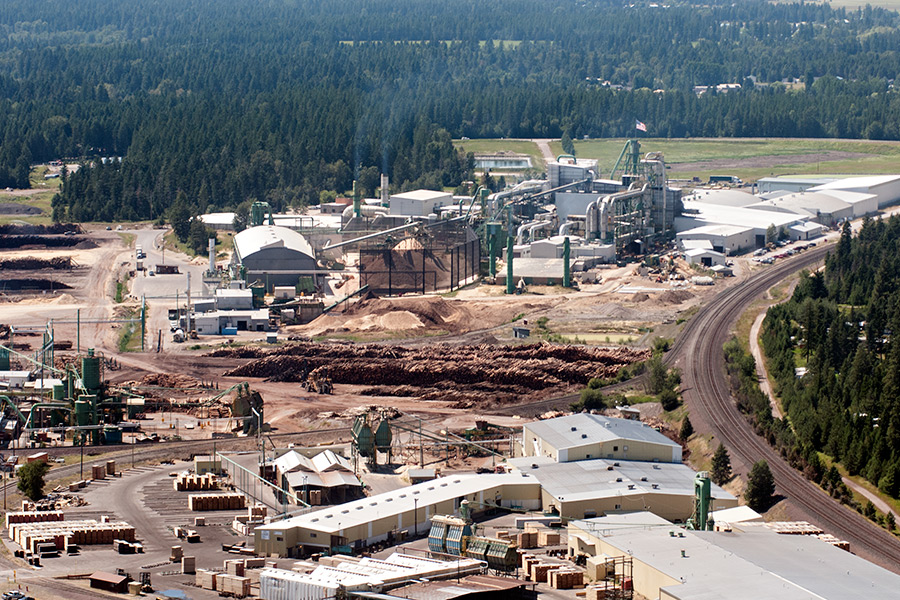Montana Gov. Steve Bullock and U.S. Sen. Jon Tester are echoing concerns raised over a merger between Plum Creek Timber and Weyerhaeuser Company, asking for assurances that jobs and public access will be maintained after the massive deal is completed.
The merger, announced Nov. 8, will create one of the largest timber companies in the world that will hold more than 13 million acres of timberland across the United States. Plum Creek is the largest private landowner in Montana with 888,000 acres. A bulk of those lands are in this corner of the state.
With certain limitations, Plum Creek has allowed free, public access on nearly all of its timbered Montana lands for decades. Weyerhaeuser, in contrast, allows paid access on much of its land through permits and exclusive leases. Permits are often limited in number and can cost as much as $275.
The finer points of how the transaction, which is expected to be completed in the first half of 2016, will affect land access on Plum Creek’s 880,000 acres of land in Montana, most of it in the Salish Range from Kalispell to Libby, remain unclear after the merger was recently announced.
Community members and industry observers have been wondering aloud what the multibillion-dollar merger will mean for the Plum Creek mills and their 750 employees in the Flathead Valley.
Bullock issued a letter to Weyerhaeuser CEO Doyle Simons on Nov. 19.
“I am writing to ask for your assurance that operations in Montana will not be substantially impacted by this merger and that the access that Montanans have enjoyed for years will not be gated off,” Bullock said in the letter.
He highlighted the open access policy that Plum Creek had established on its land, and highlighted how these efforts had worked to build a productive working relationship with Montanans, the state, and adjacent neighbors.
“I am very concerned that Weyerhaeuser may not fully appreciate Montana’s culture around this issue. It is my understanding that the company charges a fee for access to its lands in Oregon and Washington,” Bullock continued. “That approach will not be well-received in Montana.”
Tester issued a similar letter Nov. 18 to Simon and Rick Holley, CEO of Plum Creek.
“Plum Creek is a major economic driver for Montana’s economy and an important partner in responsibly managing land in the state,” Tester wrote. “As this proposed merger progresses, I urge all parties to retain the local workforce and the same level of access to our outdoors.”
Tester said the state’s outdoor recreation industry relies on access to land and open spaces, and he urged Weyerhaeuser to follow Plum Creek’s example.
“Montanans’ way of life is inextricably tied to our land,” he wrote. It drives our economy, whether it be agriculture, tourism or our sawmills. It also defines us and is central to the state’s heritage.”
A message was left Nov. 19 with Weyerhaeuser’s media relations department seeking comment.
On Nov. 8, Weyerhaeuser and Plum Creek officials said the merger would result in more than $100 million in annual savings. At closing, the combined company is expected to be worth $23 billion. The combined company, which will operate under the Weyerhaeuser name, could look to eliminate redundancies within the ranks, specifically in management and office employees, according to industry experts.
Montana State Auditor Monica Lindeen, who also serves on the Montana Land Board, has raised similar concerns.
At the land board’s meeting on Nov. 16, Lindeen echoed the concerns of Montana hunting and angling groups, and urged Weyerhaeuser to continue Plum Creek’s policy of free and open public access on its lands.
“Montana welcomes Weyerhaeuser to our state and we hope they will keep Plum Creek’s 750 Montana employees and continue to provide free and open access to their lands,” Lindeen said.
Lindeen asked FWP officials to conduct additional research on Weyerhaeuser’s access policies and provide the information to the Land Board at its next meeting.
